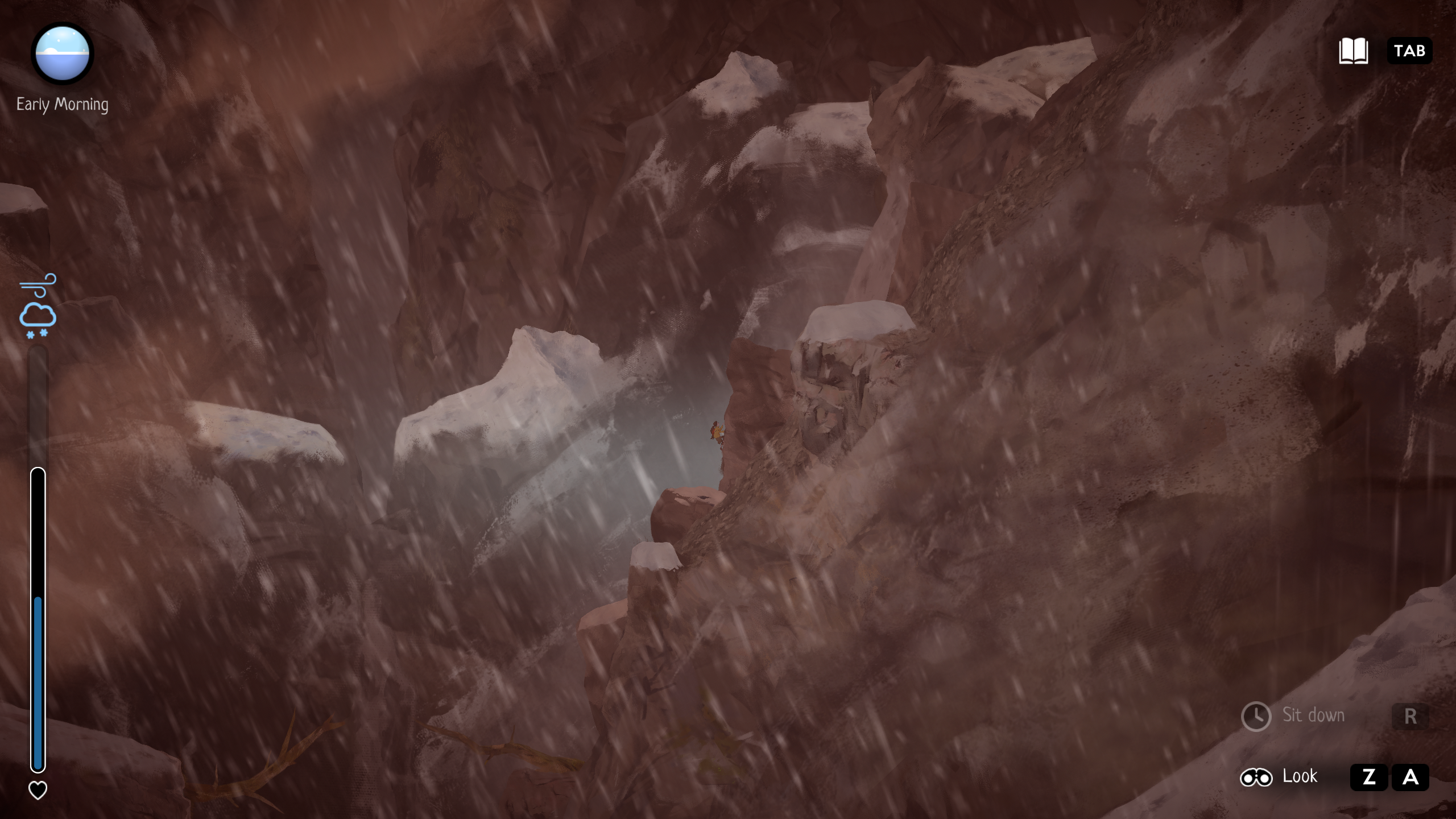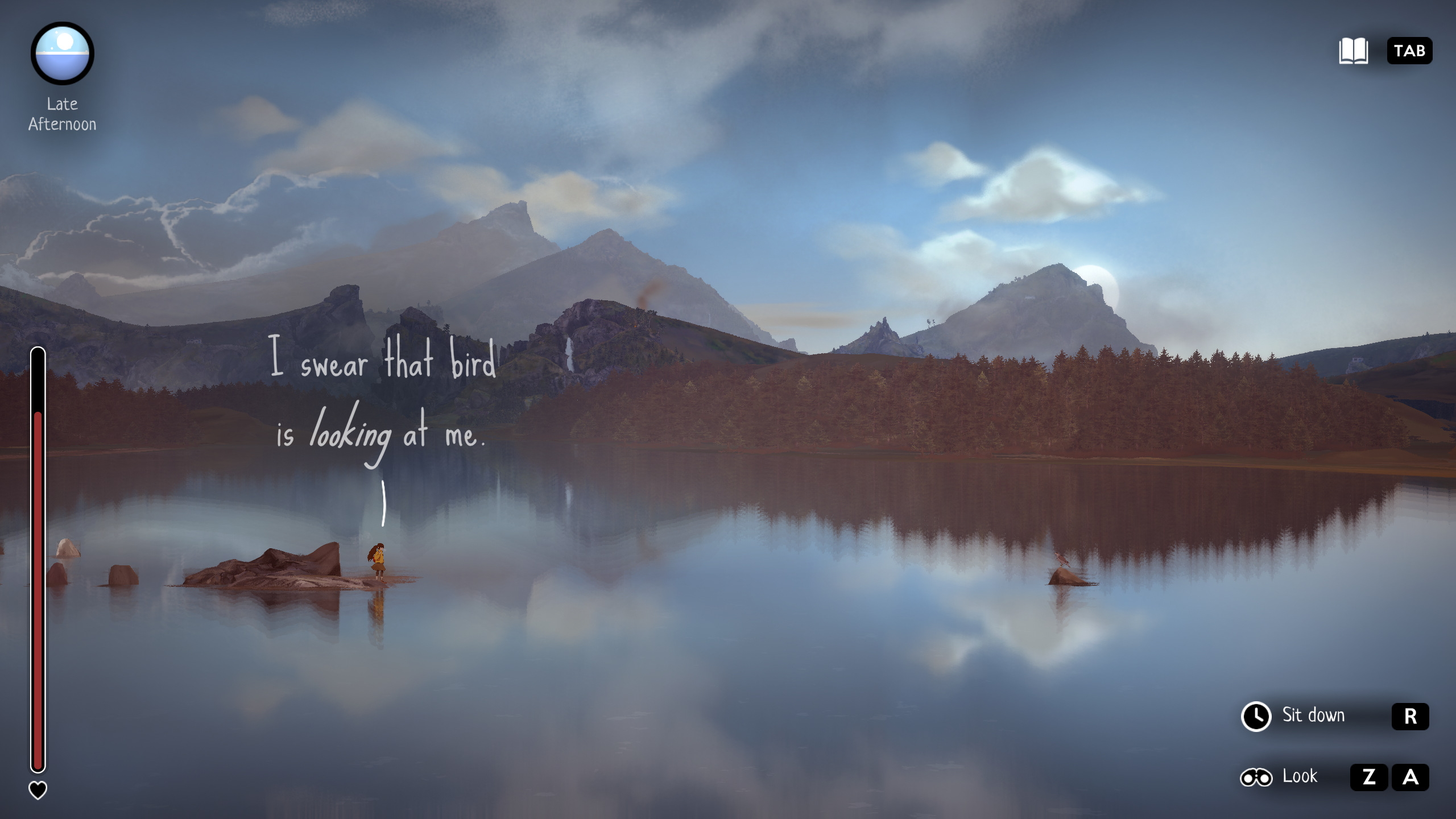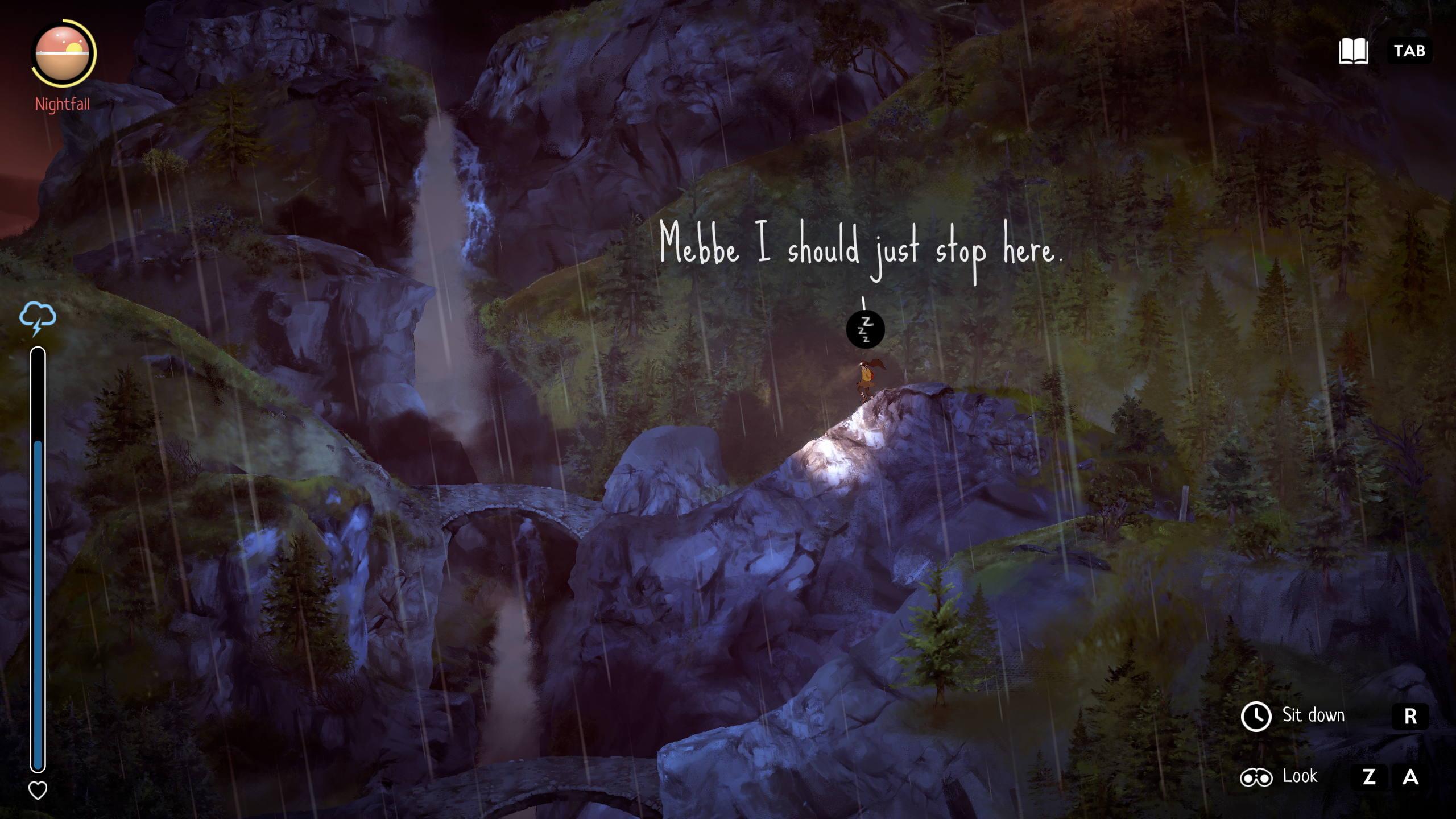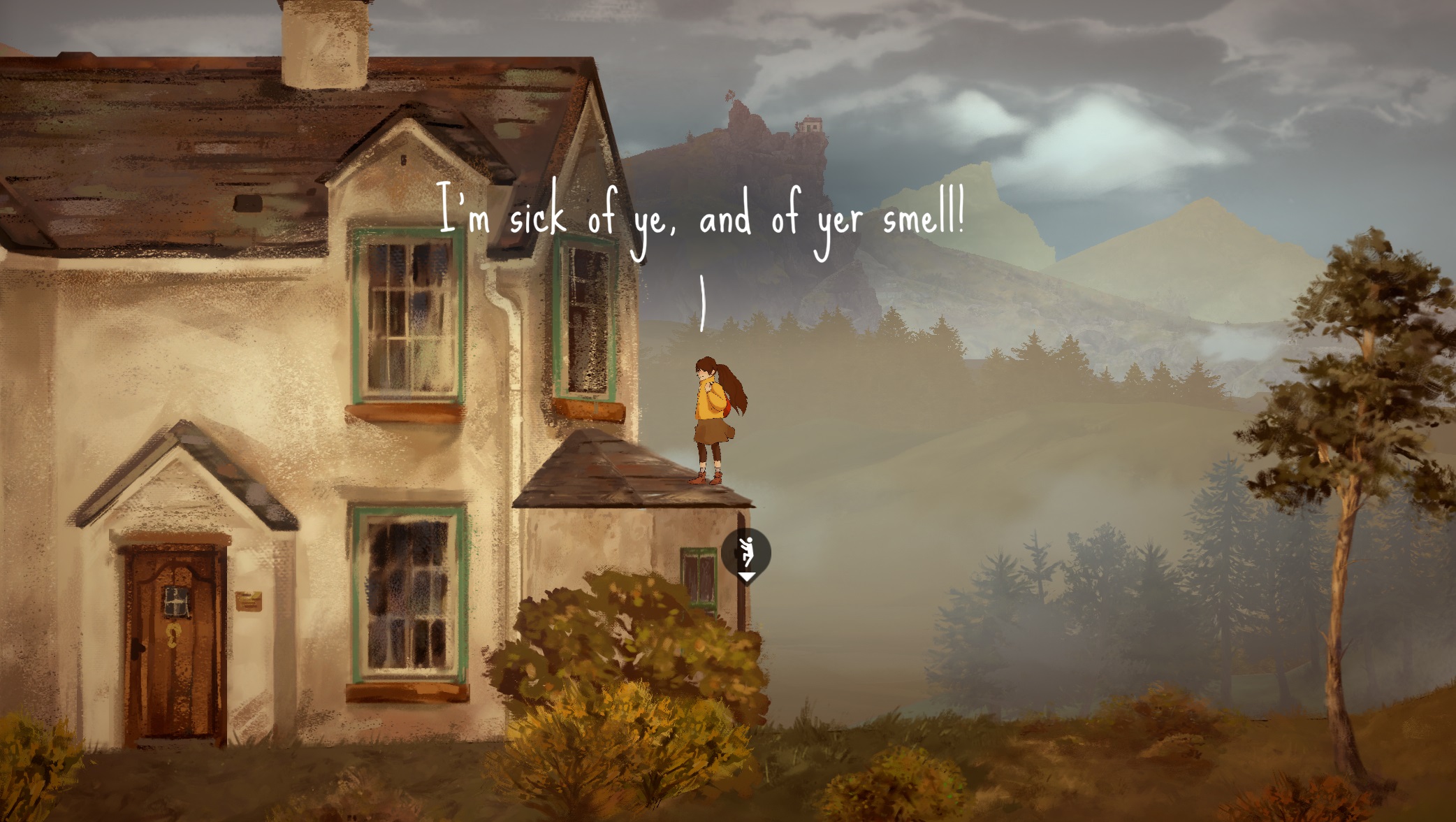Our Verdict
A mismatched mix of genres grafted onto a moving, beautifully presented story.
PC Gamer's got your back
What is it? A platformer, a rhythm game, a branching story—in other words, another inkle narrative experiment.
Release date December 5, 2023
Developer inkle
Publisher inkle
Reviewed on Radeon 5700 XT, i5-9600K, 16GB RAM
Steam Deck N/A
Link Official site
Experimental, genre-bending approaches to interactive storytelling have always been inkle's stock-in-trade, from the increasingly ambitious multi-part adaptation of Steve Jackson's Sorcery! to the high-seas intrigue of Overboard! As fascinated as I was by each of these singular hybrids, I was always struck by a shared incongruity, the feeling that their mechanical and narrative layers were often at odds with each other. Incorporating elements of platforming, survival, and rhythm games, A Highland Song is arguably their most multi-faceted work yet. Can those elements blend into a coherent whole?
Moira McKinnon has never been to the sea. She does not get along with her mother who insists she cannot go to school because she wouldn't fit in. Her father has been absent for all her life and her little brother is a bore. So when Uncle Hamish, a kooky lighthouse-keeper who regularly mails her postcards with fanciful stories about heartbroken selkies and furious giantesses, asks her to visit in time for Beltane—the Gaelic May Day—she does what any restless teenage girl would do in her place. She hurriedly packs a knapsack, hurls a farewell insult to her mother, and sets off across a horizon of ever-rising hillcrests.

A Highland Song makes for a breathtaking first acquaintance. The Scottish scenery is vividly painted in the earthen browns and luscious greens of pine forests, and later, when the peaks get higher and the temperatures lower, with the harsh whites of a sudden blizzard. Gallivanting through these idyllic environments is a joy in itself and, initially at least, the game does a great job of conveying the exhilaration of Moira's newfound freedom via a myriad little visual touches: the pep oozing from every frame of her jump animation; the carefree bobbing of her ponytail as she gallops up the gentlest of slopes; the ability to zoom out for a heart-stopping panoramic view (which doubles as the best option for orienting yourself).
A meticulously crafted soundscape of cawing magpies, murmuring brooks, and Moira's own panting breath completes the illusion of this enchanting place—a world where a moderately unusual rock will be named something dramatic like "Woe's Wedding" or "Devil's Tail".
Strolling, jumping, scaling
Of course, aimless wandering and gawking at the local sights are just the simplest modes of engaging with A Highland Song. Platforming is the base component in the game's generic DNA, even if Moira's preternatural athleticism eliminated any challenge from the equation as I leapt across chasms, rode a landslide, or sprang from crag to crag with the assuredness of a mountain goat. On the contrary, climbing up a sheer precipice to reach the higher peaks and catch a glimpse of the Atlantic played more like a spatial puzzle, each vertical ascent almost like a bite-sized version of Death Stranding's arduous delivery missions. Stamina management and careful planning for intermediary stops were required lest Moira exhausted herself halfway through and plunged into the depths below, costing precious time and getting injured in the process.

Yet another mode of traversal involves the much-hyped rhythm runs, predetermined stretches of (mostly) flat land where our heroine picks up the pace and jauntily skips to the tune of rousing Scottish folk songs performed by Talisk and Fourth Moon—respected bands of that scene. I appreciated them as uplifting musical interludes but, otherwise, these sections felt both half-baked as rudimentary mini-games (featuring only two input options that, moreover, were not always attuned to the notes being played), and somewhat disconnected from the overall experience.
In fact, while both rhythm runs and the game as a whole seemed to constantly propel me forward (not least through constant reminders that I should reach the lighthouse in time for Beltane), I found that learning to slow down was key to my enjoyment. Exploring alternative paths became an excuse to stumble upon numerous minor distractions that breathed life into the setting, such as the goshawks that perch on remote spots and reveal fragments of backstory as they fly away. But even from a more practical perspective, ambling around allowed me to discover items that would prove helpful for inventory-based puzzles along the way and notes hinting at useful shortcuts, as well as interact with a host of memorably quirky characters, from the wounded soldier who has forgotten his name but is adamant that he used to be a bird, to the talking statue of a mythical sea creature carved out of love and regret.

But if adjusting the pace to my liking was within my control other, less malleable, aspects of the game still pointed to that familiar incongruity. While the absence of a map is perfectly reasonable in the context of a game about getting lost, the intricate level design coupled with awkwardly implemented controls (not to mention the occasional glitch that saw me disappear in the bowels of the Earth or rendered interactive hotspots inactive) comprised an excessive punishment for my wanderlust. Every time I got disoriented, the fear of running in circles around the same cluster of hills or getting stuck at the bottom of a ravine funneled me hastily back to the nearest landmark. As a result, reaching the lighthouse for Beltane (on the second attempt, as it's not possible to complete the journey in time on the first playthrough), prompted two, similarly incompatible reactions: a certain moisture in the eyes at a not-so-shocking, but nevertheless movingly orchestrated, revelation; and a sigh of relief.
Disclosure: Former PC Gamer Features Producer Nat Clayton was a level designer on A Highland Song.
A mismatched mix of genres grafted onto a moving, beautifully presented story.


